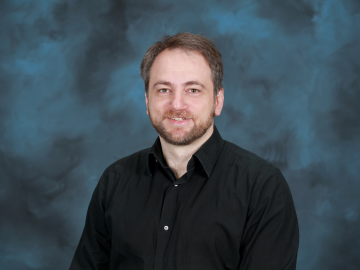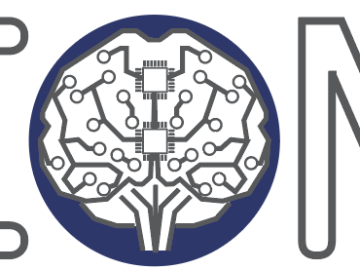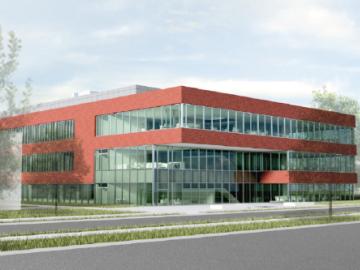
Filter News
Area of Research
- (-) Nuclear Science and Technology (8)
- (-) Supercomputing (101)
- Advanced Manufacturing (7)
- Biology and Environment (41)
- Computational Biology (1)
- Computational Engineering (1)
- Computer Science (13)
- Electricity and Smart Grid (3)
- Energy Science (143)
- Functional Materials for Energy (1)
- Fusion and Fission (9)
- Fusion Energy (2)
- Isotope Development and Production (1)
- Isotopes (2)
- Materials (132)
- Materials Characterization (1)
- Materials for Computing (21)
- Materials Under Extremes (1)
- National Security (32)
- Neutron Science (130)
- Quantum information Science (9)
- Sensors and Controls (1)
- Transportation Systems (2)
News Topics
- (-) Artificial Intelligence (37)
- (-) Coronavirus (14)
- (-) Grid (5)
- (-) Machine Learning (15)
- (-) Materials Science (19)
- (-) Microscopy (7)
- (-) Neutron Science (17)
- (-) Quantum Computing (20)
- (-) Quantum Science (25)
- (-) Transportation (6)
- 3-D Printing/Advanced Manufacturing (8)
- Advanced Reactors (12)
- Big Data (22)
- Bioenergy (9)
- Biology (11)
- Biomedical (19)
- Biotechnology (2)
- Buildings (4)
- Chemical Sciences (5)
- Computer Science (97)
- Critical Materials (3)
- Cybersecurity (9)
- Energy Storage (8)
- Environment (23)
- Exascale Computing (26)
- Frontier (32)
- Fusion (9)
- High-Performance Computing (43)
- Isotopes (7)
- Materials (15)
- Mathematics (2)
- Molten Salt (5)
- Nanotechnology (11)
- National Security (8)
- Nuclear Energy (39)
- Partnerships (1)
- Physics (10)
- Polymers (2)
- Security (6)
- Simulation (16)
- Software (1)
- Space Exploration (8)
- Summit (43)
Media Contacts

A joint research team from Google Inc., NASA Ames Research Center, and the Department of Energy’s Oak Ridge National Laboratory has demonstrated that a quantum computer can outperform a classical computer

Using the Titan supercomputer and the Spallation Neutron Source at the Department of Energy’s Oak Ridge National Laboratory, scientists have created the most accurate 3D model yet of an intrinsically disordered protein, revealing the ensemble of its atomic-level structures.

Processes like manufacturing aircraft parts, analyzing data from doctors’ notes and identifying national security threats may seem unrelated, but at the U.S. Department of Energy’s Oak Ridge National Laboratory, artificial intelligence is improving all of these tasks.

Artificial intelligence (AI) techniques have the potential to support medical decision-making, from diagnosing diseases to prescribing treatments. But to prioritize patient safety, researchers and practitioners must first ensure such methods are accurate.

Materials scientists, electrical engineers, computer scientists, and other members of the neuromorphic computing community from industry, academia, and government agencies gathered in downtown Knoxville July 23–25 to talk about what comes next in

OAK RIDGE, Tenn., May 7, 2019—Energy Secretary Rick Perry, Congressman Chuck Fleischmann and lab officials today broke ground on a multipurpose research facility that will provide state-of-the-art laboratory space

Using artificial neural networks designed to emulate the inner workings of the human brain, deep-learning algorithms deftly peruse and analyze large quantities of data. Applying this technique to science problems can help unearth historically elusive solutions.

OAK RIDGE, Tenn., March 4, 2019—A team of researchers from the Department of Energy’s Oak Ridge National Laboratory Health Data Sciences Institute have harnessed the power of artificial intelligence to better match cancer patients with clinical trials.

Oak Ridge National Laboratory scientists have created open source software that scales up analysis of motor designs to run on the fastest computers available, including those accessible to outside users at the Oak Ridge Leadership Computing Facility.
OAK RIDGE, Tenn., Feb. 12, 2019—A team of researchers from the Department of Energy’s Oak Ridge and Los Alamos National Laboratories has partnered with EPB, a Chattanooga utility and telecommunications company, to demonstrate the effectiveness of metro-scale quantum key distribution (QKD).


